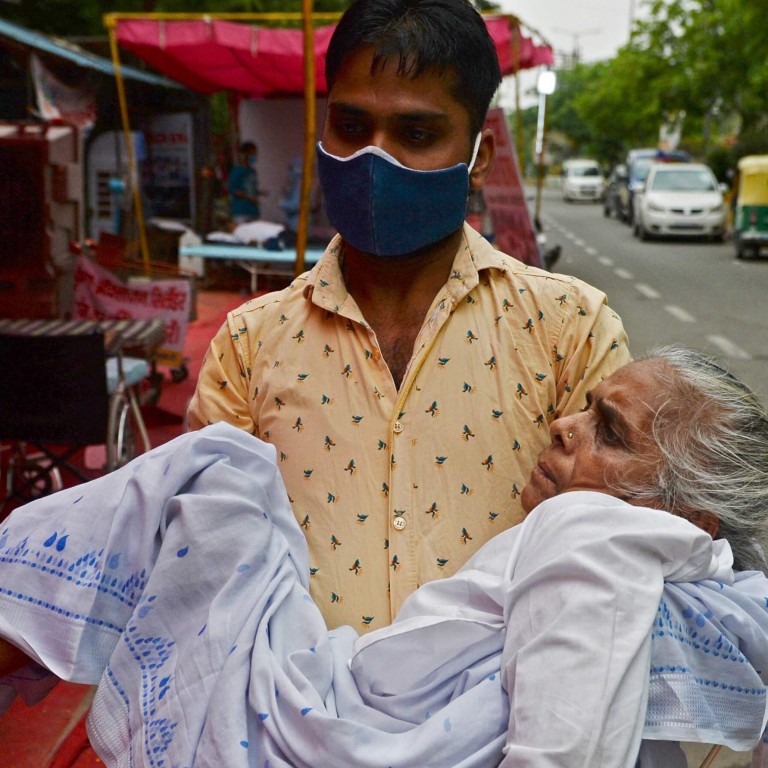
WHO designates coronavirus strain in India ‘variant of concern’; doctors warn against using cow dung to ward off virus
- The mutation first found in India appears to be more contagious and might also have increased resistance to vaccines, the UN health agency says
- Meanwhile, doctors have sought to discourage people in the state of Gujarat from covering their bodies in cow dung, in the belief it boosts immunity
The UN health agency said the B. 1.617 variant of Covid-19 first found in India last October might also have some increased resistance to vaccine protections. “There is some available information to suggest increased transmissibility of the B. 1.617,” Maria Van Kerkhove, the WHO’s lead on Covid-19, told reporters.
She also pointed to early studies “suggesting that there is some reduced neutralisation”, a reference to the possibility that vaccines might be less effective against it. “As such, we are classifying this as a variant of concern at the global level,” she said. More details would be provided in the WHO’s weekly epidemiological update on Tuesday, she added.

01:42
Temple in India converted into care centre as coronavirus cases skyrocket
It has for some time been feared that B. 1.617 – which counts several sub-lineages with slightly different mutations and characteristics – might be contributing to the alarming spread. But until now, WHO has listed it merely as a “variant of interest”.
Deadly ‘black fungus’ adds to India’s Covid-19 woes
Now it will be added to the list containing three other variants of Covid-19 – those first detected in Britain, Brazil and South Africa – which the WHO has classified as being “of concern”. They are seen as more dangerous than the original version of the virus by being more transmissible, deadly or able to get past some vaccine protections.
Even if vaccine efficacy may be diminished against some variants of Covid-19, the jabs can still provide protection against serious illness and death. And Van Kerkhove stressed that when it comes to the B. 1.617 variant, for the time being “we don’t have anything to suggest that our diagnostics or therapeutics and our vaccines don’t work”.
The WHO’s chief scientist Soumya Swaminathan agreed, urging a “balanced approach”.
“What we know now is that the vaccines work, the diagnostics work, the same treatments that are used for the regular virus work,” she told journalists.
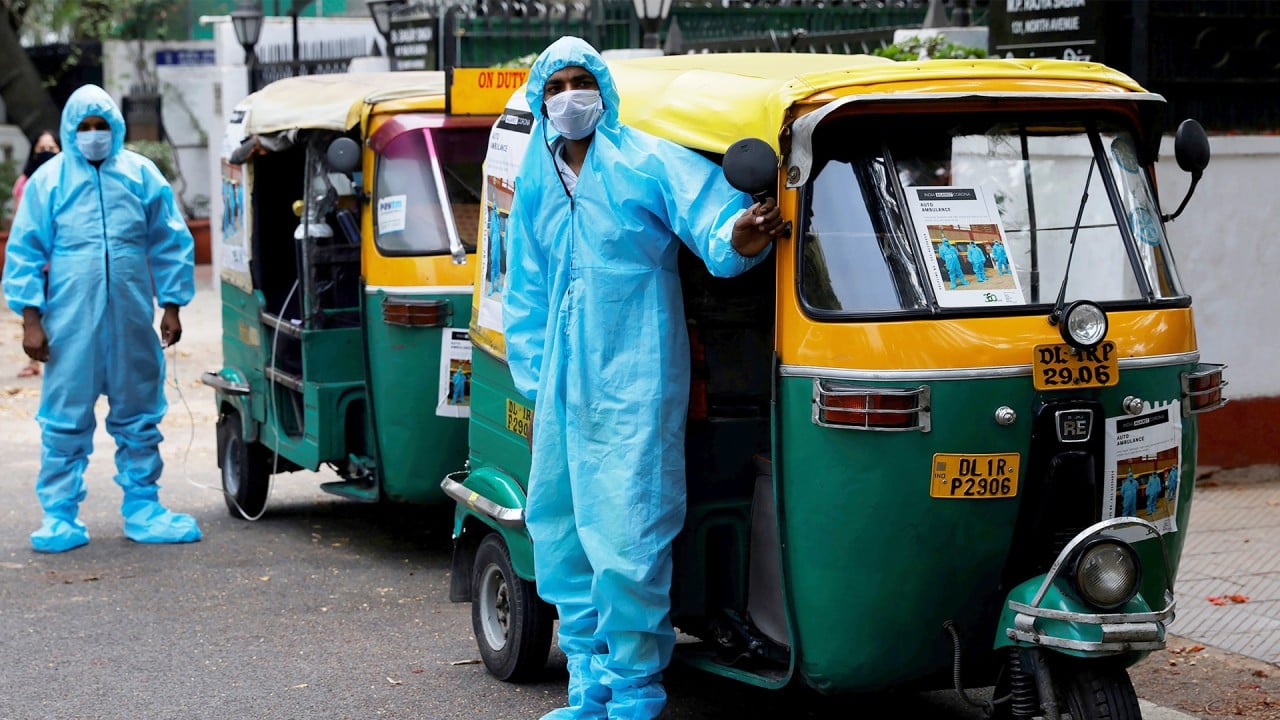
01:51
Auto-rickshaws used as ambulances in India as coronavirus surge strains health system
“So there’s really no need to change any of those, and in fact … people should go ahead and get whatever vaccine is available to them and that they are eligible for.”
Experts highlight that the more the virus spreads, the bigger the risk it will find ideal conditions to mutate in concerning ways, stressing that everything must be done to rein in transmission.
“We will continue to see variants of concern around the world, and we must do everything that we can to really limit the spread,” Van Kerkhove said.
Indian doctors warn against Covid-19 cow dung ‘therapy’
Doctors in India are warning against the practice of using cow dung in the belief it will ward off Covid-19, saying there is no scientific evidence for its effectiveness and that it risks spreading other diseases.
In the state of Gujarat in western India, some believers have been going to cow shelters once a week to cover their bodies in cow dung and urine in the hope it will boost their immunity against, or help them recover from, the coronavirus.
In Hinduism, the cow is a sacred symbol of life and the earth, and for centuries Hindus have used cow dung to clean their homes and for prayer rituals, believing it has therapeutic and antiseptic properties.
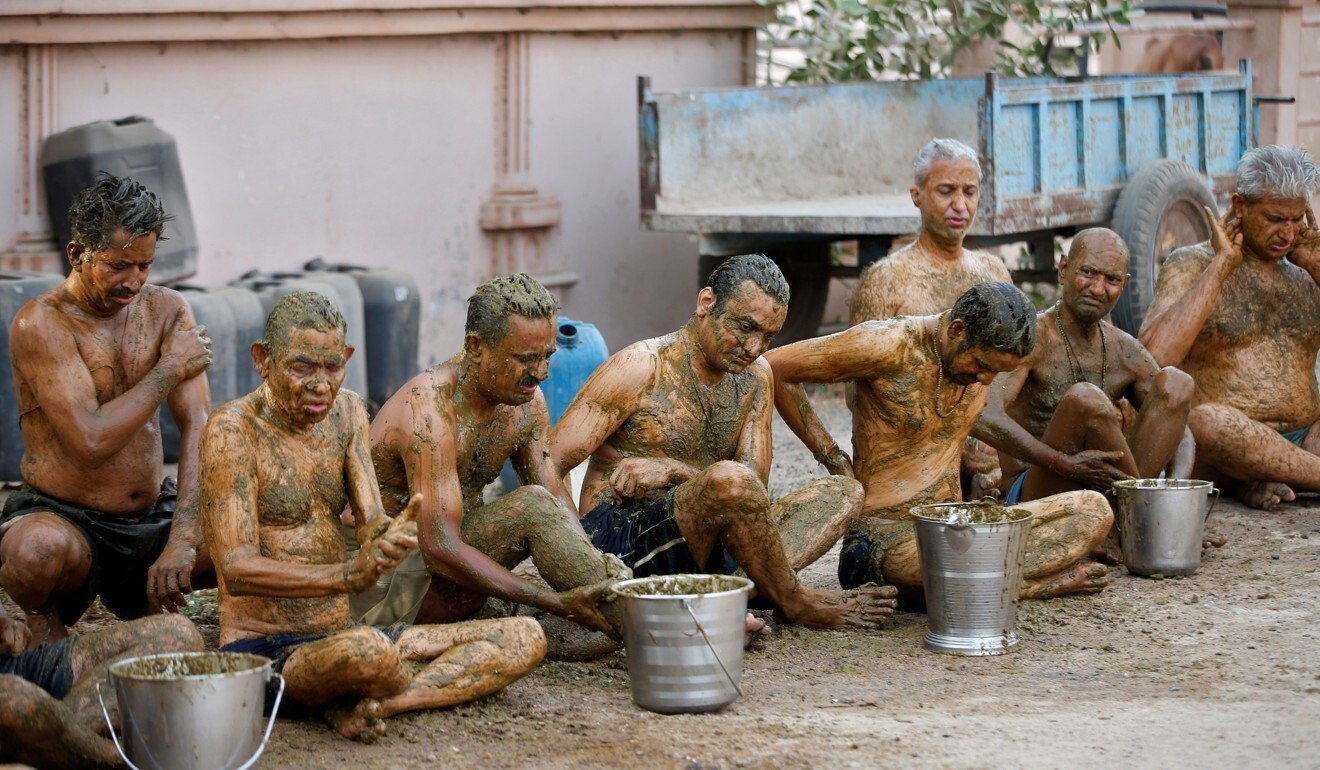
“We see … even doctors come here. Their belief is that this therapy improves their immunity and they can go and tend to patients with no fear,” said Gautam Manilal Borisa, an associate manager at a pharmaceuticals company, who said the practice helped him recover from Covid-19 last year.
As participants wait for the dung and urine mixture on their bodies to dry, they hug or honour the cows at the shelter, and practice yoga to boost energy levels. The packs are then washed off with milk or buttermilk.
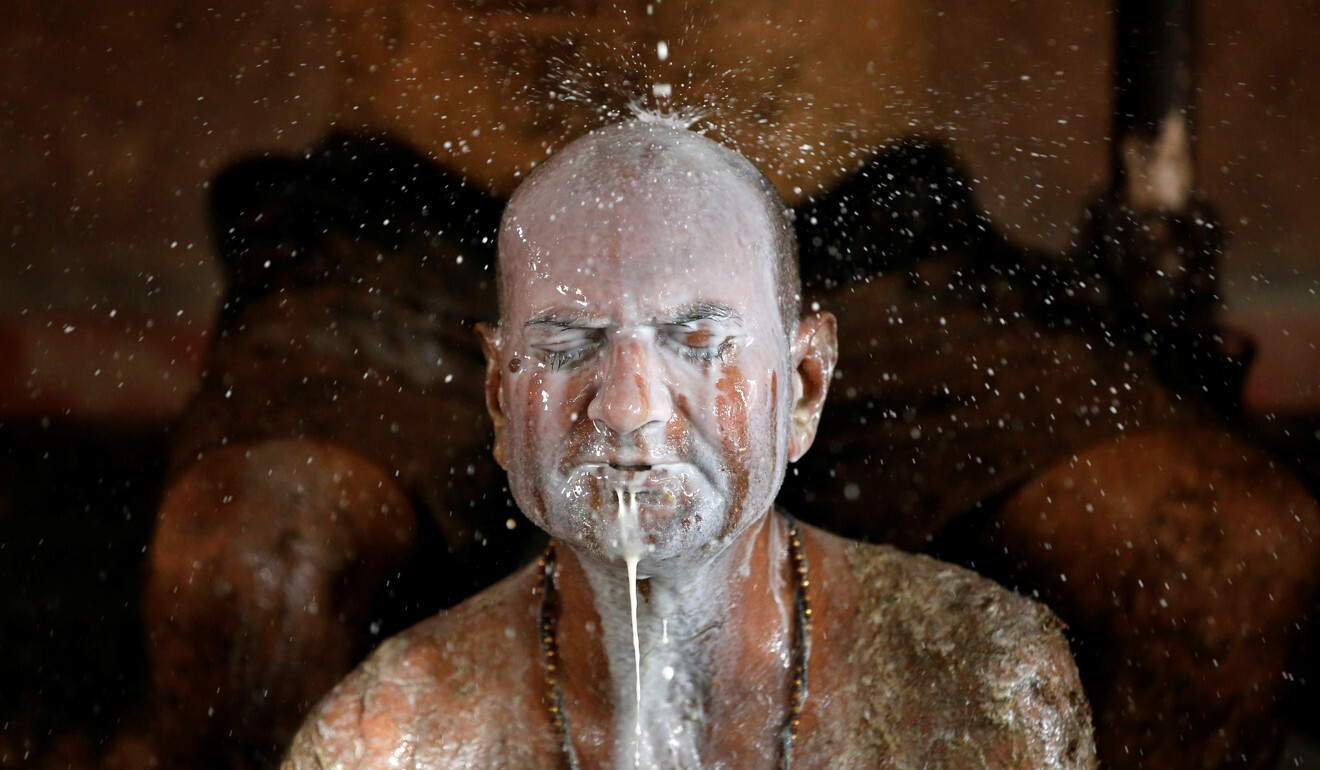
Doctors and scientists in India and across the world have repeatedly warned against practising alternative treatments for Covid-19, saying they can lead to a false sense of security and complicate health problems.
“There is no concrete scientific evidence that cow dung or urine work to boost immunity against Covid-19, it is based entirely on belief,” said Dr JA Jayalal, national president at the Indian Medical Association. “There are also health risks involved in smearing or consuming these products – other diseases can spread from the animal to humans.”
There are also concerns the practice could contribute to the spread of the virus as it involved people gathering in groups. Madhucharan Das, in charge of another cow shelter in Ahmedabad, said they were limiting the number of participants.
India’s northeast fears impending virus surge
With experts saying the coronavirus is likely spreading in India’s northeastern state of Assam faster than anywhere else in the country, authorities were preparing on Monday for a surge in infections by converting a massive stadium and a university into hospitals.
Cases in Assam started ticking upwards a month ago and the official seven-day weekly average in the state on May 9 stood at more than 4,700 cases. But a model run by the University of Michigan – which predicts the current spread of cases before they are actually detected – says infections in Assam are likely occurring as fast as any other place in the country.
Add to that recent elections in the state – and the huge political rallies that accompanied them – and experts fear a uncontrolled surge is on the horizon.
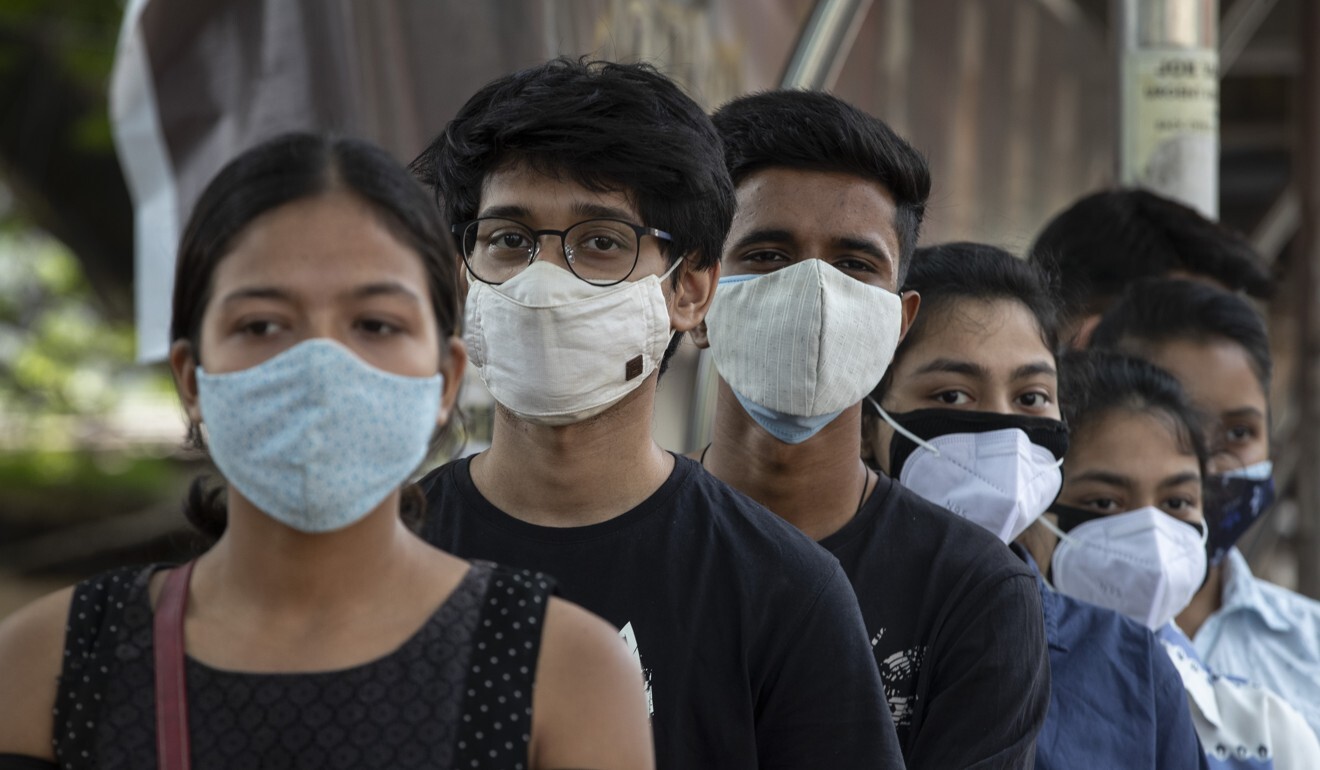
Worryingly, along with cities in India’s northeastern frontier – which is closer to Myanmar, Bangladesh and Bhutan than it is New Delhi – cases have also started to spike in some remote Himalayan villages in the region.
Officials in Assam were racing to prepare for a virus surge because similar onslaughts in infections have overwhelmed hospitals in much richer Indian states.
“We are adding 1,000 beds a week to prepare ourselves in the event of cases spiralling,” said Dr Lakshmanan S, the director of the National Health Mission in Assam.
Chinese firms see surge in demand from India for medical oxygen devices
The state’s largest government-run hospital, the Guwahati Medical College Hospital has more than doubled its number of intensive care beds to 220 and health officials are building another 200 in the hospital’s car park.
A football and cricket stadium is being converted into a hospital for Covid-19 patients with 430 beds. The private Royal Global University in the state capital, Gauhati, has been converted into a hospital with 1,000 beds.
The state is sending doctors, paramedics and medicine to these facilities and the university said it would provide books and newspapers for patients to read.
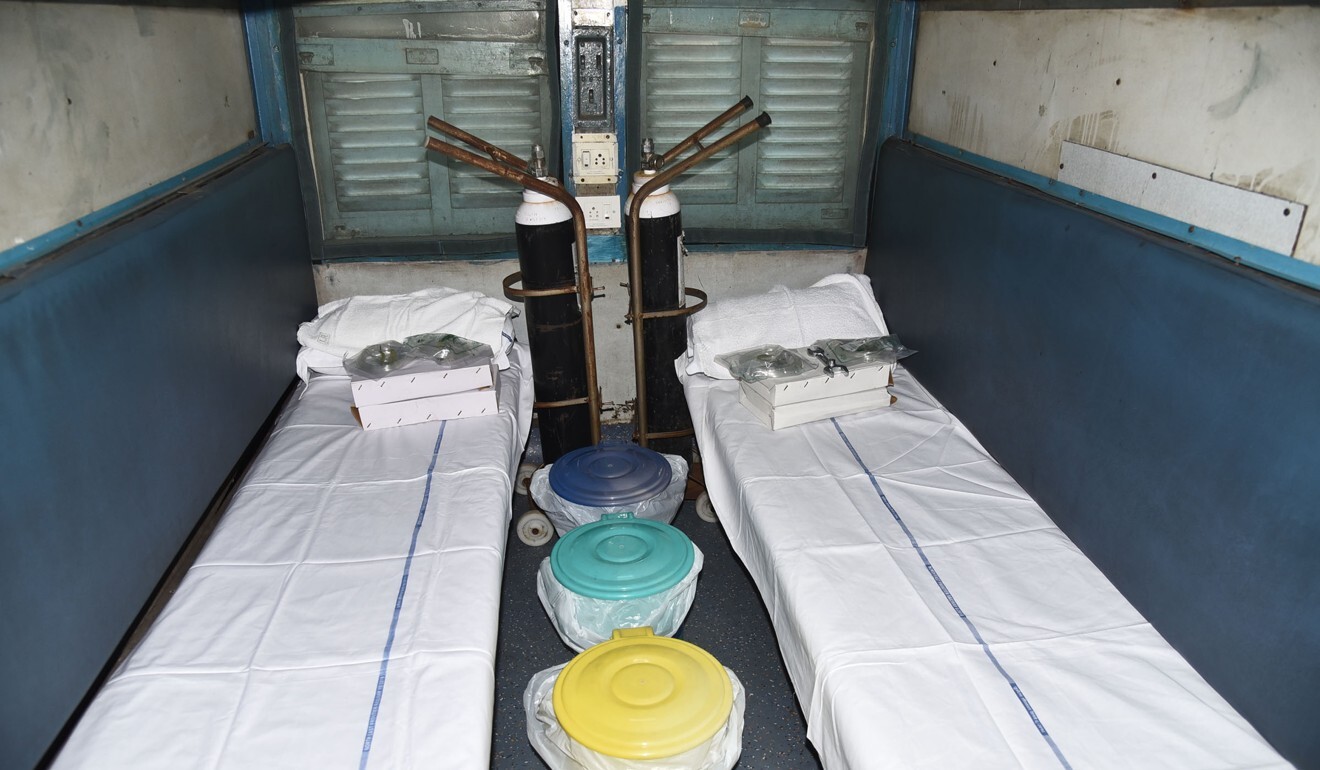
“This is the least we thought we could do in this time of huge crisis for our country,” said Dr AK Pansari, the university chairman.
There are 2,100 beds reserved in government centres for Covid-19 patients in Gauhati, with hundreds more planned. That is in addition to the existing 750 beds for patients at private hospitals in the state.
Even as infections have increased, the rates of vaccination have fallen in Assam and the other states in the region since India expanded its coverage to include all adults on May 1.
Adding to concerns is confirmation the virus has started spreading into more remote Himalayan villages with poor health infrastructure. These areas are home to indigenous tribes, whose are already face some of the lowest access to health care in the nation.
Reporting by Agence France-Presse, Reuters, Associated Press
